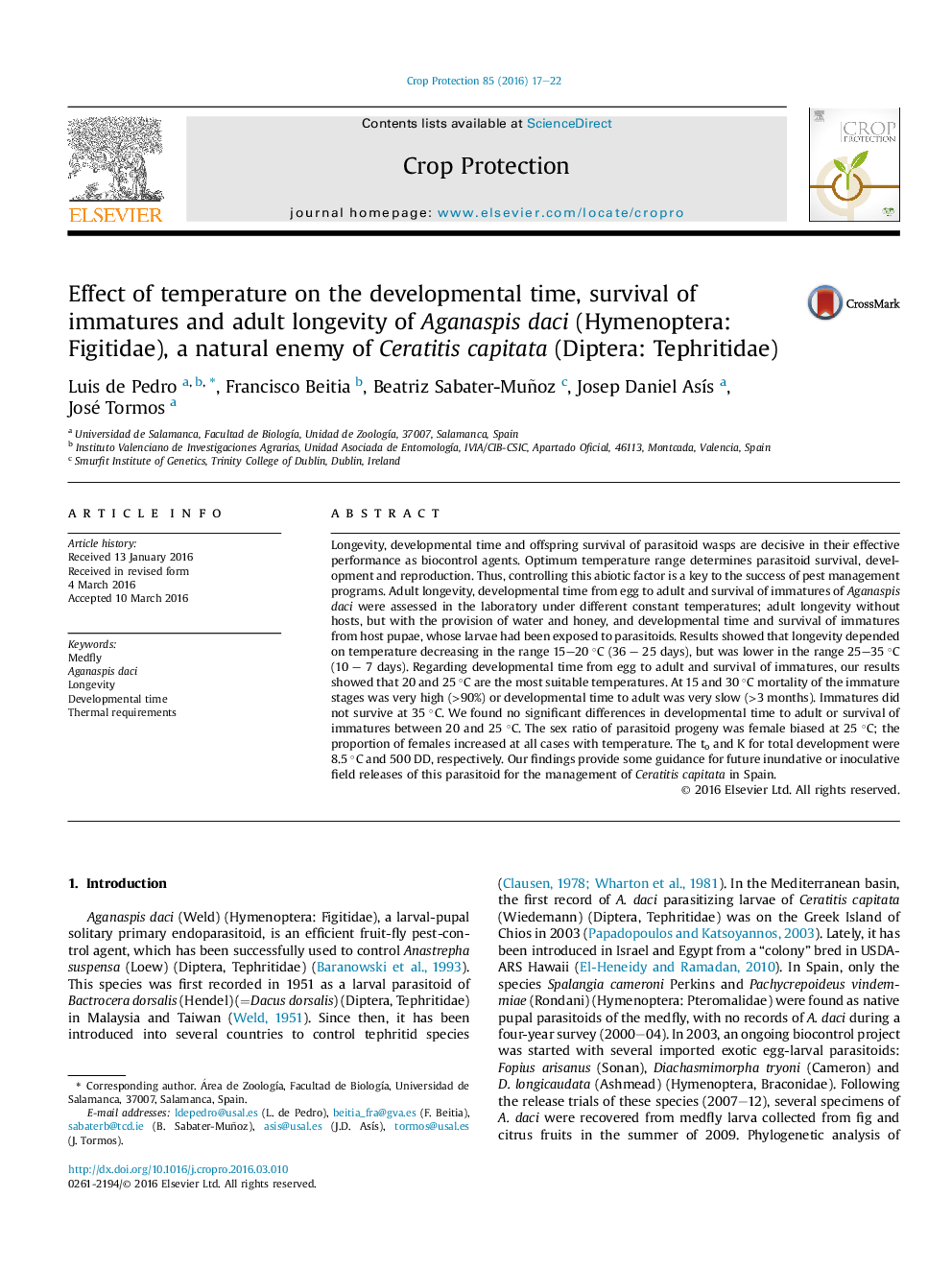| Article ID | Journal | Published Year | Pages | File Type |
|---|---|---|---|---|
| 6373297 | Crop Protection | 2016 | 6 Pages |
Abstract
Longevity, developmental time and offspring survival of parasitoid wasps are decisive in their effective performance as biocontrol agents. Optimum temperature range determines parasitoid survival, development and reproduction. Thus, controlling this abiotic factor is a key to the success of pest management programs. Adult longevity, developmental time from egg to adult and survival of immatures of Aganaspis daci were assessed in the laboratory under different constant temperatures; adult longevity without hosts, but with the provision of water and honey, and developmental time and survival of immatures from host pupae, whose larvae had been exposed to parasitoids. Results showed that longevity depended on temperature decreasing in the range 15-20 °C (36 - 25 days), but was lower in the range 25-35 °C (10 - 7 days). Regarding developmental time from egg to adult and survival of immatures, our results showed that 20 and 25 °C are the most suitable temperatures. At 15 and 30 °C mortality of the immature stages was very high (>90%) or developmental time to adult was very slow (>3 months). Immatures did not survive at 35 °C. We found no significant differences in developmental time to adult or survival of immatures between 20 and 25 °C. The sex ratio of parasitoid progeny was female biased at 25 °C; the proportion of females increased at all cases with temperature. The to and K for total development were 8.5 °C and 500 DD, respectively. Our findings provide some guidance for future inundative or inoculative field releases of this parasitoid for the management of Ceratitis capitata in Spain.
Related Topics
Life Sciences
Agricultural and Biological Sciences
Agronomy and Crop Science
Authors
Luis de Pedro, Francisco Beitia, Beatriz Sabater-Muñoz, Josep Daniel AsÃs, José Tormos,
